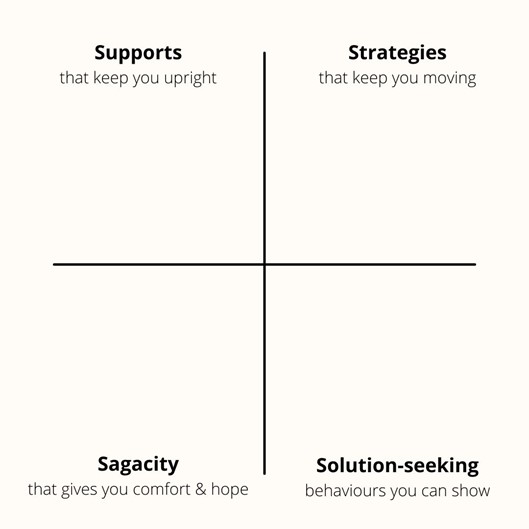Resilience
Resilience
When you spend so much of your professional life talking about trauma in its various guises, it’s natural to also explore some of the human behaviours and characteristics that helpful counteract the negative effects that trauma can leave behind in its wake.
My son refers to resilience as ‘the bounce-back’. It’s a pretty sound way of looking at it, I think. Resilience is certainly a protective factor when it comes to trauma and it is also a muscle that needs to be trained, or a skill that needs to be practiced. If we have never learned, or been given the chance to fall down, we have never learned how to figure out how to get up again. And, as the author Paulo Coelho says, “the secret of life, though, is to fall down seven times and to get up eight times.”
The awesome team at The Resilience Project (LINK: https://theresilienceproject.com.au/) suggest that resilience is made up of these three elements:
- Gratitude – paying attention to the things and moments we have right now, not focusing on what may or may not happen in the future
- Empathy – which is closely linked to kindness and compassion. When we are able to think about the world from another’s perspective it allows us to be compassionate to them
- Mindfulness – allowing us to be present in the here and now and helping us to be in states of flow and enabling us to be calm in the face of adversity
If you’re a reflective soul who like to write things down to make sense of them then I think you’ll like this practice to help ‘plan’ resilience. It’s called the Four S’s:
I would start with a past experience where you have demonstrated resilience and complete this four-way grid.
- Supports: consider who were ‘your people’ – who did you turn to, and who was there to rely on when you needed them most?
- Strategies: what did you do to help you cope with the discomfort and unhelpful thoughts that inevitably showed up? Did you meditate, journal, exercise or listen to music / podcasts?
- Sagacity: what wisdom or insights did you cling onto? They might be in the form of quotes or song lyrics, books or spiritual texts.
- Solution-seeking behaviours: did you plan ahead, go into research mode or talk to others who had been there / done that before you?
Then it’s time to turn to the future – how could you make this approach work as a blueprint for other moments that will happen in the future? If there is one thing we know about life, it is that just because you have experienced trauma and adversity in the past it sadly doesn’t make you immune to future pain and hurt. Resilience is your superpower to help you navigate that.
Don’t get me wrong, I know that all the resilience in the world won’t make you invincible in the face of trauma. Trauma is still traumatic irrespective of how resilient you are. Trauma sucks, but resilience helps.
If you’d like somewhere to talk about strategies to strengthen your resilience, please get in touch with us: www.theabaker.com.au / hello@theabaker.com.au / 03 9077 8194.


